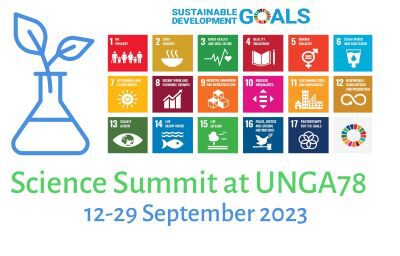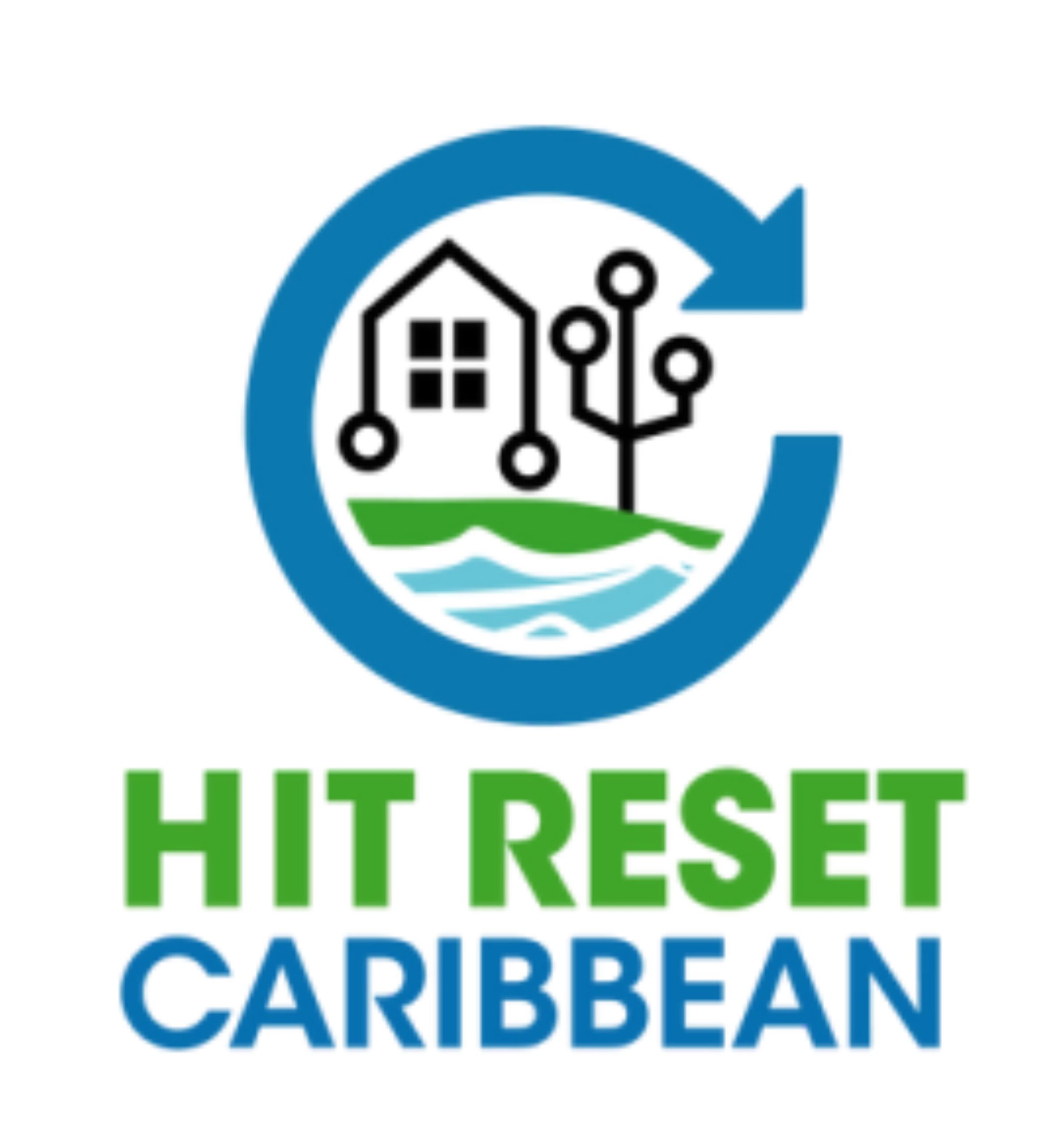The role and contribution of science to attaining the United Nations Sustainable Development Goals (SDGs) will be the central theme of the Summit. The objective is to develop and launch science collaborations to demonstrate global science mechanisms and activities to support the attainment of the UN SDGs, Agenda 2030 and Local2030.
The meeting will also prepare input for the United Nations Summit of the Future, which will take place during UNGA79 beginning on 12 September 2024.
The Summit will examine what enabling policy, regulatory and financial environments are needed to implement and sustain the science mechanisms required to support genuinely global scientific collaborations across continents, nations and themes. Scientific discovery through the analysis of massive data sets is at hand. This data-enabled approach to science, research and development will be necessary if the SDGs are to be achieved. The Science Summit will begin with a Digital Science Plenary on 12-13 September 2023.
Registration will allow you to select the sessions you want to attend. Only by selecting the session, you will see the button link to access the Video Stream.
The Science Summit consists of approximately 350 sessions, bringing together 1400 speakers and building on the successful Science Summit at UNGA77 in 2022.
Selection of panels at the 9th edition of the Science Summit
in CEST (Central European Simmer) and CAT (Central Africa) time zones
12/09 @8:00pm - 10:00pm [VIRTUAL] The Role of Affordable and Clean Energy on the Sustainable Development of Africa
The symposium covered the following themes: Clean energy sources; Clean energy development policies; Energy transition, efficiency and utilisation; Energy consumption prediction and optimisation; Key technologies for smart energy management; Reliability and maintenance of clean energy systems.
- Shaikha AlSanad Program Manager / Research Scientist, Kuwait Institute for Scientific Research
- Akilu Yunusa-Kaltungo Reader in Reliability and Maintenance Engineering, The University of Manchester
- Qingyao Qiao Postdoctoral Research Fellow, University of Hong Kong
- Abdulkadir Mukhtar
- Okereke Ndubuisi Uchechukwu Senior Lecturer, Federal University of Technology, Owerri. Nigeria
- Aliyu Aliyu
- Abdullahi Mas'ud Associate Professor, Jubail Industrial College
- Anisa Gumel Doctoral researcher, University of Salford
- Najib Yusuf Galadanci PhD Assistant Director R & D, NASRDA'S Centre for Atmospheric Research
12/09 @9:00pm - 11:00pm [VIRTUAL] Inclusive Science for Global Sustainable Development in a Climate-changing World
- Victory Opeolu Doctoral student of electronic engineering, Stellenbosch University
- Palesa Natasha Mothapo Director: Research Support and Management, Nelson Mandela University
- Femi Adekoya Founder, Integrated Aerial Precision
- Professor Chioma Blaise Chikere Professor/Director, Entrepreneurial Centre, UniPort; Academic Associate, CAES, UNISA, University of Port Harcourt
- Bamidele Ademola Olateju Commissioner, Ondo State Government
- Beatrice Opeolu Director, BEE Solutions and Consultancy Services
- Eric Van Genderen Director - EHS, International Zinc Association
- Oluwaseun Oyekola Research Specialist and Consultant, BEE Solutions and Consultancy Services
- Sabine E. Apitz Editor in Chief, Integrated Environmental Assessment and Management
- Laurel A. Royer Founder and Chief Science and Technical Officer, Carinalis Consulting and Research
13/09 @3:00pm - 5:00pm [VIRTUAL] Exploring the Value of Living Labs in Co-Creation and Open Innovation with ENOLL
Living labs, as real-world experimentation environments, have proven to be essential platforms for fostering collaboration, enabling rapid learning, and creating value for stakeholders. This session uncovered the unique potential of living labs to accelerate innovation, enhance stakeholder engagement, and contribute to sustainable development within the framework of co-creation and open innovation by serving as vital connectors between technology and human-centric societal goals14/09 @10:00am - 11:30am [VIRTUAL] Climate-smart Approaches to enhance Ruminant/Livestock production efficiency and Food production systems
- Opening remarks: Dr Andrew Magadlela (Group Executive: Animal Sciences, ARC);
- Welcome and Introduction: Prof Azwihangwisi Maiwashe (General Manager: ARC-Animal Production);
- Dr. Ackim Mwape (New Zealand Agricultural Greenhouse Gas Research Centre); Overview of the Global Research Alliance on Agricultural Greenhouse Gases and partnerships in Africa. PRESENTATION
- Dr Claudia Arndt (ILRI, Kenia); Current State of Research on Livestock GHG Emissions and Mitigation in Sub-Saharan Africa;
- Prof Michiel Scholtz: (ARC-Animal Production, South Africa), Climate-smart research: Current and planned projects, challenges and opportunities for southern-Africa.
- Ms Minky Groenewald (Eswatini); An overview of NDCs (Nationally Determined Contributions) in southern African and the role of farmers organizations
- Dr Sithembile Ndemi Mwamakamba (FANRPAN); Analysis of policy for climate change mitigation and adaptation
- Prof Mahlako Makgahlela (Research Team Manager: Animal Breeding and Genetics, ARC-Animal Production),
14/09 @2:00pm - 3:30pm [VIRTUAL] Closing the science-policy-practice gaps for Climate Resilience and sustainable Food Systems
- Triona Mccormack University College Dublin, Ireland Ireland’s experience in Sustainable Food and Agriculture
- Petronella Chaminuka Acting Group Executive: Impact and Partnerships Unit, ARC South Africa for Dr Litha Magingxa CEO ARC of South Africa Agricultural research technologies for climate resilience
- Dr Rose Omari Principal Research Scientist and the Deputy Director at the Science and Technology Policy Institute, Council for Scientific and Industrial Research (CSIR-STEPRI) Ghana. Coordinating the development and adoption of the national policy for aflatoxin control in food and feed in Ghana
- Triona Mccormack, University College Dublin, Ireland Influencing policy through evidence
- Mariamme Maiga (PhD) Regional Gender and Social Development Adviser CORAF Gendered perspectives
- Michael Bairu, Principal Researcher and Research Team Manager Vegetable, Industrial and Medicinal Plants’ Root, Tuber and Bulbous ARC South Africa Meeting bread and butter needs through science
- Prof A Mushunje - University of Fort Hare, South Africa Developing capacities for science
He presented an upcoming study on climate change topics in the curricula of South African universities - Genna Tesdall- Young Professionals for Agricultural Development YPARD
- Summary and closing remarks Petronella Chaminuka
15/09 @ 3:00pm - 6:00pm [VIRTUAL] Expanding scientific frontiers via international cooperation and networking, with COST and NSF, USA
15/09 @4:00pm - 6:00pm [VIRTUAL] Capacity Building through Interdisciplinarity: Inroads to Policy Innovation
15/09 @6:00pm - 8:00pm [VIRTUAL] AI Governance, Africa and SDGs: Opportunities and Challenges
This session had four speakers from diverse AI backgrounds who presented individual cases by applying an AI governance lens.
- Michael Zimba Director, Malawi University of Science and Technology
- Shikoh Gitau CEO of Qhala, a Digital Innovation company that catalyzes digital transformation capabilities for organizations across Africa.
- Magdalene Kariuki Associate Director, Africa Practice
- Peter G. Kirchschlaeger Ethics-Professor, University of Lucerne
- Maha Jouini Founder and CEO, African Center for AI and digital Technology. She is a UNDP Business Mentor and founder of the African Center for Artificial Intelligence and Digital Technology. Based in Mauritania, She is working as Digital Transformation Consultant.
15/09 @7:15pm - 8:45pm [VIRTUAL] From Global Goals to Greener Plates: Empowering Nature with Sustainable Diets with Wageningen University and Research and the World Wildlife
- Brent Loken Global Food Lead Scientist for WWF
- Edith Feskens Professor in Global Nutrition at Wageningen University & Research
- Nelly Isigi Kadagi Director of Conservation Leadership and the Education for Nature Program for WWF
- Ravic Nijbroek Head of Science and Impact for WWF Netherlands
- Jelle Maas Public Affairs Manager, Wageningen University & Research
- Jeanne Nel Programme Lead: Biodiverse Environment, Wageningen University & Research
- Sjoukje Heimovaara President of the Executive Board of Wageningen University & Research
- Kirsten Schuijt WWF
18/09 @3:00pm - 5:00pm [VIRTUAL] The role of science and technology in developing clean energy for emerging and developing economies
Science plays a crucial role in driving research and development of clean energy technologies that are suitable for the unique challenges and contexts of developing countries.
19/09 @3:00pm - 7:00pm [VIRTUAL] Academia - industry partnership: The missing link in Africa
A lot of effort has been going on to stimulate academia-industrial linkages across the globe with obvious tangible and varying successes in across locations. There has been notable success on the Triple Helix approach in Silicon Valley (Vaivode 2015) but low level of investment in knowledge generation (research and innovation), intellectual property ownership, mistrust, low level of expertise, poor research uptake (implementation) and lack of interest in R and I by different players cause low level of academia-industry collaboration and partnerships in Africa.This is the link and this is the passcode [ 7cwB!eBb ] to the recorded proceedings of the session
- James Waithaka Chief Operating Officer, Chief Operations Officer, Research Beeline Ltd, Kenya
- Ari Jacobovits Managing Director, Massachusetts Institute of Technology-Africa, MIT, US
The MIT-Africa Program empowers MIT students and faculty to advance knowledge and solve the world’s great challenges by connecting them with leading researchers, companies, and other partners in African countries. - Abraham Abebe Assefa Dean of Business and Economics College and Assistant professor of management, Assosa University, Ethiopia
- Vincent Onywera Deputy Vice Chancellor, KCA University, Kenya
- Wales Singini Vice Chancellor, Mzuzu University, Malawi
- Joseph Njogu CEO, Research Beeline Ltd, Kenya
19/09 @4:00pm - 6:30pm [VIRTUAL] Evolution of Science Policy in Africa: A Future’s Perspective on Africa’s Role in Improving Global Policy
- Anna Fumarola Senior Project Manager, Women for Africa Foundation
- Michelle Angwenyi Strategic Designer, ThinkPlace Kenya
- Ian Peter Busuulwa Coordinator, Bioeconomy Coalition of Africa
20/09 @3:00pm - 5:00pm [VIRTUAL] Innovation and sustainability in agriculture - do we need a new discourse?
20/09 @3:00pm - 9:00pm [VIRTUAL] Building Sustainable Food and Health future using Artificial Intelligence Technologies and Methodologies - using Nigeria as Case Study.
21/09 @3:00pm - 5:00pm [VIRTUAL] Plant Molecular Farming: Advances in Biopharmaceutical Biomanufacturing
- Sandiswa Mbewana Lecturer, University of Cape Town
- Tsepo Tsekoa Chief Researcher, Council for Scientific and Industrial Research (CSIR) South Africa
- Maretha O’Kennedy Senior Scientist, CSIR
- Simon Saxby CEO, Leaf Expression Systems Ltd BS Belinda Shaw Cape Bio Pharms
- Mr. Alioune Faye of VaRRIWA - Valorising Research Results and Innovation in West Africa
Links between academia, the public and private sector, and civil society are strengthened to ensure that the results of research and innovation (R&I) are readily accessible and effectively disseminated, exploited and used. A research ecosystems will be created with actors who are active upstream (identification of R&I needs and development of solutions) as well as downstream (economic exploitation and application of solutions) taking into account national and regional R&I policies. - Mrs. Lionelle Ngo-Samnick of PDTIE project (Deployment of Environmental Technologies and Innovations for Sustainable Development and Poverty Reduction), led by IFDD in the Democratic Republic of Congo and Cameroon, in partnership with Kongo University in the DRC, Eden Africa and Ingénieurs Sans Frontières in Cameroon.
They shared their experiences and initial results achieved by their respective projects, whose main goal is creating an incentive environment for technology transfer, commercialisation of results and sustainable and green innovations by researchers and innovators. See interview 08/02/2023
- Mrs. Legena Henry, CEO of Rum & Sargassum, a company from Barbados involved in SarGASsum, one of the projects operating within the ACP Innovation Fund supported project HIT RESET (Caribbean region). The HIT RESET project aims to enhance the capacity of government entities, coastal development agencies and coastal communities to identify existing vulnerabilities, anticipate impacts, and plan and implement mitigation and adaptation measures, allowing coastal settlements to become more climate-smart and resilient.
She talked about her company, a spin-off of research results generated at the Renewable Energy Development Laboratory (University of the West Indies), and how SarGASsum is contributing to commercialising the use of Sargassum (seaweed) for the production of biogas as a means towards the transition into green energy in Barbados.
- Mr Mucktarr Darboe, Director of STI, Ministry of Higher Education, Research, Science and Technology, The Gambia. - He talked about the Policy Support Facility (PSF) service in The Gambia, the setting up of a national Innovation Fund, and how innovation funds, along with reinforcing Technology Transfer Offices, Intellectual Property and Technology Transfer Offices, and establishing technoparks, etc., can improve the commercialisation of R&D outputs.
- Mr Tom Peter Migun Ogada, Chairman of the Board of the Kenya National Innovation Agency (Kenya) - He testified about the Policy Support Facility (PSF) service in Kenya, its value in contributing to improving the commercialisation of R&D outputs in Kenya, and how the service recommendations have contributed to the launch of the Institutional Commercialisation Support initiative.
21/09 @4:00pm - 6:00pm [VIRTUAL] An Assessment of Nigeria’s Agriculture Promotion Policy for Poverty Reduction and Zero Hunger to Achieve 2030 Sustainable Development Goals (SDGs) with University of Lagos
22/09 @3:00pm - 6:00pm [VIRTUAL] Pan-African initiative to build research and innovation capacity to achieve SDG7 for Africa
European funding for research and innovation
- Jackson Howard (EURAXESS North America, Washington D.C./United States): International cooperation under Horizon Europe
- Dr Thomas Ammerl (BayFOR, Munich/Germany): European green calls for proposals: funding, challenges and support
- Dr Emmanuel Benjamin (AGLOBE Development Center, Lagos/Nigeria): INtegrated and Circular Technologies for Sustainable city region FOOD systems in Africa (INCiTiS-FOOD)
- Dr Jingshui Huang (Technical University of Munich, Munich/Germany): Water Efficient Allocation in a Central Asian Transboundary River Basin (WE-ACT)
- Dr Brian Jonathan Young (Instituto Nacional de Tecnología Agropecuaria, Buenos Aires/Argentina): A global approach for recovery of arable land through improved phytoremediation coupled with advanced liquid biofuel production and climate friendly copper smelting process (Phy2Climate)
- Prof. Dr Ralf Ludwig (Ludwig-Maximilians-Universität, Munich/Germany) or Prof. Chrysi Laspidou (University of Thessaly, Volos/Greece): Climate-resilient regions through systemic solutions and innovations (ARSINOE)
- Prof. Joule Bergerson (University of Calgary, Calgary/Canada): System Assessment of LNG options from North America to the EU (CarbonNeutralLNG)
- Bernhard Kowatsch (WFP Innovation Accelerator, Munich/Germany)
- Janina Hanswillemenke (Universidad de la Frontera, Temuco/Chile)
- Prof. Dr Ralf Ludwig (Ludwig-Maximilians-Universität, Munich/Germany)
- Sander Dolder (New York City Development Corporation, New York/United States)
25/09 Science capacity building for the future: defining the Skills Agenda
 The growing interest in identifying future-ready human skills amidst rapid technological growth has inspired new cross-sector collaboration on education and skill development. This symposium addresses how we can make a more inclusive approach to science capacity building a critical part of the UN Summit of the Future in 2024. Issues such as climate change, biodiversity loss, and water scarcity require urgent solutions informed by science.
The growing interest in identifying future-ready human skills amidst rapid technological growth has inspired new cross-sector collaboration on education and skill development. This symposium addresses how we can make a more inclusive approach to science capacity building a critical part of the UN Summit of the Future in 2024. Issues such as climate change, biodiversity loss, and water scarcity require urgent solutions informed by science.- Petter Næss Executive Director, Fulbright Foundation Norway
- Larisa Schelkin NASA GLOBE Educator, UNITAR Global Diplomacy Faculty, New York/Global
- STEM Education Center, Inc
- Laila Sandroni Fellow, Conviva (T2S)
- Tshiamiso Makwela Research Scientist and Postdoctoral Fellow, Internation Astronomy Union Office of Astronomy Education and University of Cape Town, Max Planck Institute for Astronom
- Charles Takalana Head of Secretariat (AfAS) & Co-Chair: IAU-GA2024 National Organising Committee, African Astronomical Society (AfAS)
- Rebecca Barnes AAAS STP Fellow, Belmont Forum
- Ismahan Soukeyna DIOP Associate Professor of Psychology, Université Cheikh Anta Diop
- Andres Villalba Ministry of Education and Universidad Gaston Dachary









No comments:
Post a Comment